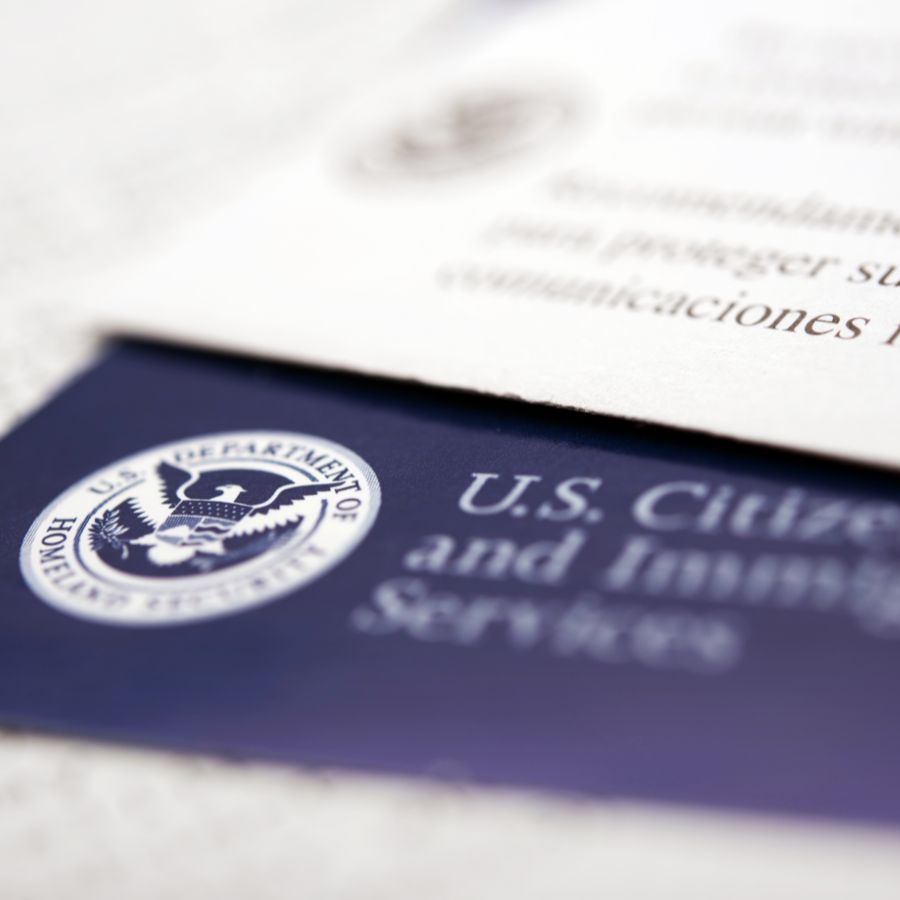Humanitarian Parole From Tedesco Legal
Obtain humanitarian parole from the U.S. with Tedesco Legal’s expert guidance!
At Tedesco Legal, we’re experts at securing humanitarian parole from the U.S., a temporary solution provided by USCIS for individuals who need urgent admission into the country.
The process is complex, requiring the submission of specific documents and compelling evidence. This is not a pathway to permanent residency but an essential lifeline in critical circumstances. We’re thorough in our approach, ensuring that each application enhances the likelihood of a positive outcome. Discovering more about the program’s intricacies and how we can assist will reveal the full potential of this essential resource.

What is Humanitarian Parole?
While the intricacies of immigration law can often be complex, understanding the concept of Humanitarian Parole is necessary.
It’s a program administered by USCIS, granting immigration benefits to individuals who otherwise wouldn’t qualify for regular immigration status. This parole is not a ticket to permanency; it serves as a temporary solution for those with urgent humanitarian reasons or if their entry would provide a notable public benefit.
Delving into the specifics, we find that USCIS exercises broad discretion to parole individuals into the United States, particularly those facing urgent humanitarian needs. This grant of parole is case-specific, and not everyone qualifies. The parole process is meticulous and designed to cater to those facing an immediate, compelling emergency that necessitates their presence in the U.S.
However, it’s important to note that Humanitarian Parole differs significantly from other immigration processes, including advance parole. Unlike asylum or refugee status, which offers a pathway to permanent residency, this parole is temporary. The end goal isn’t to change your immigration status; it’s about addressing a pressing need for humanitarian or significant public benefit.
Looking For Other Services? We provide Expert Guidance For Every step of Your Immigration Journey.
From visa applications to employment immigration, our dedicated team provides expert guidance tailored to your unique immigration journey, ensuring every step is taken with confidence and clarity.
What Are the Significant Public Benefit Reasons for Granting Parole?
It’s crucial to recognize that these are specific circumstances where an individual’s presence in the U.S. can contribute positively to society on a large scale.
These types of humanitarian or significant reasons go beyond personal benefit and touch on broader societal impacts. When considering requests for parole, immigration authorities weigh the potential benefits that the individual can bring to the U.S. Some examples of noteworthy public advantage could be assisting with law enforcement investigations, contributing to scientific research, or participating in a culturally enriching program.
To be considered for parole on the grounds of noteworthy public advantage, the applicant must clearly demonstrate this in their application. This might involve providing evidence of their unique skills, qualifications, or circumstances that align with the public advantage reasons.
It’s important to understand that granting parole is not guaranteed and is considered on a case-by-case basis, particularly for those applying for humanitarian parole. Nonetheless, demonstrating a strong humanitarian or noteworthy public advantage reason can greatly enhance the likelihood of a positive outcome. This forms a crucial part of the humanitarian parole landscape and serves to ensure that the parole system is used for the greater good.

How Does the Humanitarian Parole Program Work?
The humanitarian parole program, under U.S. immigration law, is a mechanism for granting temporary authorization into the United States for urgent humanitarian reasons or significant public benefit.
To initiate the process, one must apply for parole through U.S. Citizenship and Immigration Services (USCIS). The application involves several steps, including the submission of specific documents, such as proof of urgent humanitarian reasons. The processing times can vary, so it’s essential to apply well in advance of the desired duration of parole.
Family reunification parole is one category within the broader humanitarian parole program. It provides an avenue for families separated by immigration status to reunite temporarily. However, the decision to grant parole is not automatic and depends on the discretion of the USCIS based on the individual’s circumstances.
What Are the Urgent Humanitarian Reasons for Parole Requests?
The humanitarian parole process recognizes several types of urgent humanitarian reasons.
These could include serious medical conditions, threats to a person’s safety, significant public benefit parole cases, or imminent loss of life. Requesting parole for urgent humanitarian reasons requires a compelling case. It’s not enough to simply state your urgent humanitarian reason, you need to support it with substantial evidence. This can be challenging and it’s where most applicants face common challenges in parole requests.
The documentation needed to support an urgent humanitarian reason is often complex and extensive, especially when applying for travel authorization. The challenges in parole requests increase when you have to demonstrate to the United States Citizenship and Immigration Services (USCIS) that the situation couldn’t be addressed within a reasonable time frame if you follow the regular immigration process.
Tedesco Legal Is Proud To Serve Mecklenburg And Beyond. Don’t live in the area? We Offer Phone Consultations Across The World!
What Happens After Parole is Granted?
Once parole is granted, there are three crucial aspects to ponder: the duration and conditions of parole, the rights and responsibilities of individuals granted parole, and the next steps after entering the United States on parole.
- Understanding the Duration and Conditions of Parole is crucial for those seeking travel to the United States. The duration of their parole depends on the specific case, but typically, parole expires after a year unless extended through processes like advance parole. It’s important to understand the conditions of the parole, as violating them could lead to severe consequences.
- Rights and Responsibilities of Individuals Granted Parole under the Immigration and Nationality Act: Individuals granted parole have certain rights and responsibilities. They can legally reside in the US for the duration of their parole, but they must abide by the law and the specific conditions of their parole.
- Next Steps After Entering the United States on Parole: After entering the United States, the next steps involve working towards establishing a stable life. This could include finding employment, seeking educational opportunities, or, in some cases, pursuing a path to permanent residency.
At Tedesco Legal, we know that humanitarian parole is a powerful tool for those facing dire circumstances.
It embodies America’s compassion and commitment to human rights, particularly for those applying for humanitarian parole. That’s why we’re here to provide guidance, from public benefit reasons to handling post-parole matters. We’re committed to helping you comprehend and steer this pivotal legal avenue. Your well-being is our priority, and we stand ready to assist you every step of the way.
Your Legal Solutions Start Here
Don’t face these challenges alone – let us stand by your side.
